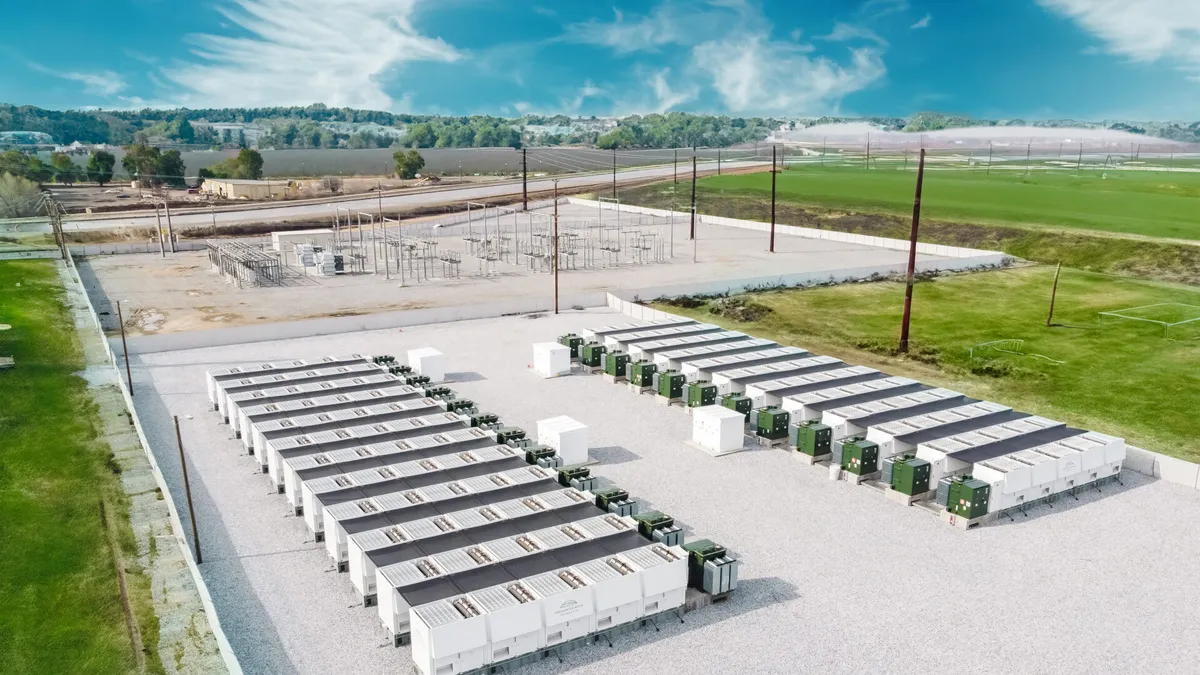Dive Brief:
- JLL is launching an artificial intelligence platform that will combine its proprietary data with generative AI models to deliver revenue-generating, cost-savings insights and “chart the future course for JLL’s AI journey,” the firm announced Tuesday.
- The new platform, JLL Falcon, aims to combine the firm’s expertise with “some of the most advanced technology available today,” while providing the foundation for continued innovation, JLL Technologies CEO Mihir Shah said in a statement. The platform will immediately power the next iteration of the company’s generative AI assistant, JLL GPT, and a wide range of commercial real estate applications, the real estate services firm said.
- “Currently, AI is seen as game changing technology by real estate decision makers; however, a low understanding of the technology’s full set of capabilities is the biggest roadblock for implementation across the enterprise,” JLL Chief Technology Officer Yao Morin said in an email. “With JLL Falcon, our clients can focus on the benefits AI brings to their business, while we handle the complexities of building and deploying AI.”
Dive Insight:
Current AI capabilities, such as image recognition, data modeling and text generation, can potentially optimize an estimated 65% of sustainable asset improvement-related tasks by increasing speed and accuracy, streamlining processes and allowing for better data management and employee retention, JLL says in a recent report. Despite AI’s potential, nearly 60% of facilities management experts do not currently have a strategy for AI adoption in 2024, but said they would like to learn more, compared with 10.4% who are already using AI regularly, according to a survey of more than 230 facilities management experts conducted for JLL’s 2024 State of Facilities Management report.
“Our clients want help understanding how AI will impact CRE, what they should pay attention to now, as well as how and why it makes sense for them to implement AI across their business,” Morin said.
At the moment, AI is used in the facilities management industry mainly for automation, analytics and content creation, Dipin Kasana, director of business analytics at JLL, said at a seminar on AI implementation in facilities management at the IFMA World Workplace conference in October.
“AI helps fill in the gaps where our skill sets may not be totally near,” especially as an aging workforce, retirements and lack of incoming qualified labor exercise more strain on the facilities management workforce, Jake Smithwick, associate professor of civil engineering technology and construction management and graduate program director of construction and facilities engineering at the University of North Carolina-Charlotte, said during the seminar.
More than 47,000 JLL professionals have used JLL GPT since its rollout in August 2023, with rapid adoption rates across both technical and non-technical roles, JLL noted in a news release. The new iteration now boasts new capabilities, including image understanding, an enhanced knowledge base and 25 times more working memory than its inaugural version, per the release.
“Further, the platform launched ‘Skills,’ a new tool that aims to harness the power of its ‘super users’ by utilizing their expertise to create repeatable AI prompts for all employees,” Morin said.
With operators increasingly adopting AI to drive energy savings, automate operations and identify time- and cost-saving opportunities, there are also growing industry expectations for generative AI technologies, Matthew Tucker, director of research at IFMA, said during the seminar. “There is a lot of hype and there's a lot of buzz, but I think we're starting to go down a little bit and we're starting to get this bit of disillusionment.” Tucker said.
“It’s certainly not a silver bullet. Instead, you should identify practical use cases to take advantage of AI’s strongest capabilities to drive value.” Morin said. “Additionally, AI can only be as effective as the humans that are using it. If you are going to spend the time and resources needed to build the infrastructure around your data to deliver on AI solutions, then you must ensure you effectively train your people on how to take advantage of it.”
JLL Falcon features multi-modal AI foundation models, data pipelines, security and privacy features, natural language and semantic processing layers, and advanced analytics capabilities, according to JLL’s news release. An open architecture will enable the platform to leverage both internal and external technologies to streamline its “approach to researching opportunities, extracting and analyzing complex data” and providing actionable insights, the company said.
The Falcon platform will further advance JLL’s approach to AI, “driven by the people who build, sell, invest, operate, manage and inhabit the space,” JLL said in the release. The firm noted that new solutions are slated to launch later this year.
JLL’s efforts to push forward with AI initiatives include a collaboration with Microsoft to test an AI-powered connected workplace app and the launch of JLL Serve, a facilities management application that uses Sclera’s AI technology to integrate data from connected and non-connected assets into a single mobile and web-based platform.
Morin noted that more than 60 projects are underway across the business. “As we look ahead to 2025 and beyond, we’re excited about the ways AI can help business leaders synthesize corporate real estate and facilities management data,” Morin said.














